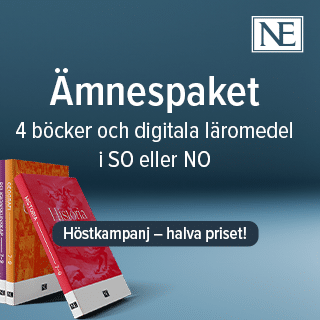Lived transitions: experiences of learning and inclusion among newly arrived students
Jenny Nilsson Folke har i sin avhandling undersökt nyanlända elevers villkor för lärande och inkludering
i olika övergångar inom det svenska skolsystemet.
Jenny Nilsson Folke
Professor Nihad Bunar, Stockholms universitet Professor Karin Aronsson, Stockholms universitet
Professor Dympna Devine, School of Education, University College Dublin
Stockholms universitet
2017-02-10
Lived transitions: experiences of learning and inclusion among newly arrived students
Barn- och ungdomsvetenskapliga institutionen
Lived transitions: experiences of learning and inclusion among newly arrived students
This thesis explores how newly arrived students experience conditions for learning and inclusion in their lived transitions within the Swedish school system. The thesis deploys an ethnographic approach combining interviews with participant observation. The data comprise interviews with 22 students at three points in time and three cycles of participant observation over the course of 15 months (in three municipalities of different sizes).
Deploying the concept of post-migration ecology, Study I maps the structural conditions that the educational landscape offers newly arrived students after migration to Sweden. The findings point to the emergence of a parallel school system through which the newly arrived students’ individual needs risk being overlooked. Study II uses a sociocultural perspective to compare the pedagogical and social resources offered in introductory and regular classes, concluding that introductory classes are characterised by weak challenges and strong support, whereas the opposite is true for regular classes. From a critical phenomenological perspective, Study III focuses on the individual students’ embodied experiences of being out of line in school (in a Swedish monolingual school setting). Paradoxically, the separate introductory class in this setting apparently offers a sense of inclusion, whereas the regular class is related to student experiences of exclusion. Study IV analyses temporal aspects of the students’ lived transition to upper secondary school. Drawing on a phenomenology of blockage, it documents how extended periods in introductory programmes create a disjunction between the students’ imagined and lived school careers. In brief, through analyses that encompass organisational and structural conditions, as well as lived experience, this thesis shows that the lived transitions of newly arrived students can be understood as instances of parallel school lives, a discontinued past and a postponed future.
Relaterade länkar

Fritidshem
 Åk F–6
Åk F–6 Matematikångest
 Åk 4–Vux
Åk 4–Vux 






